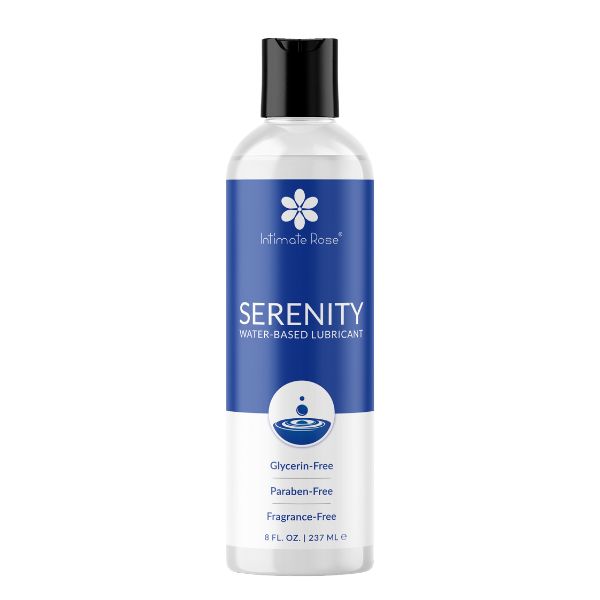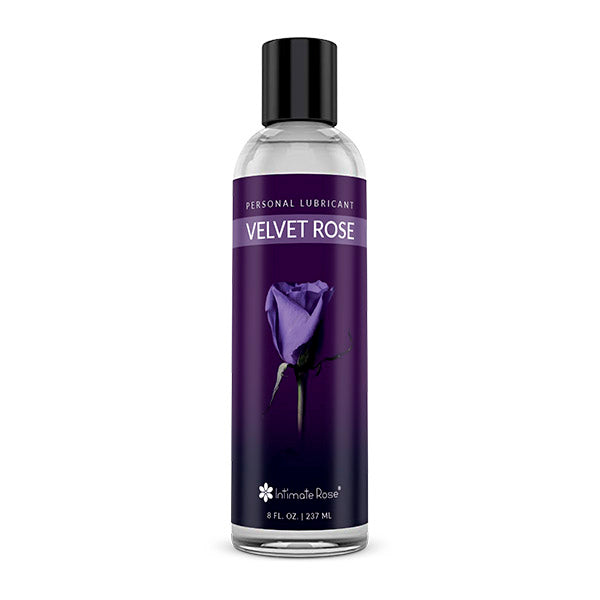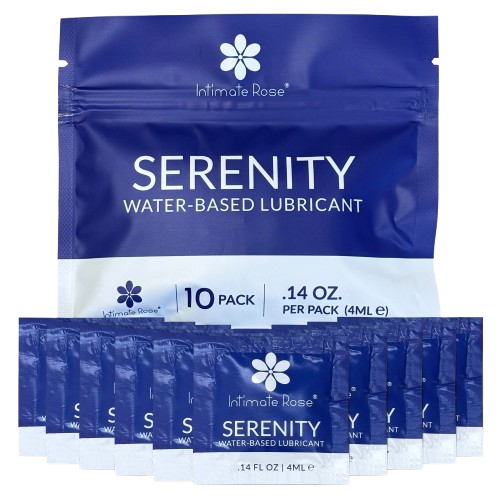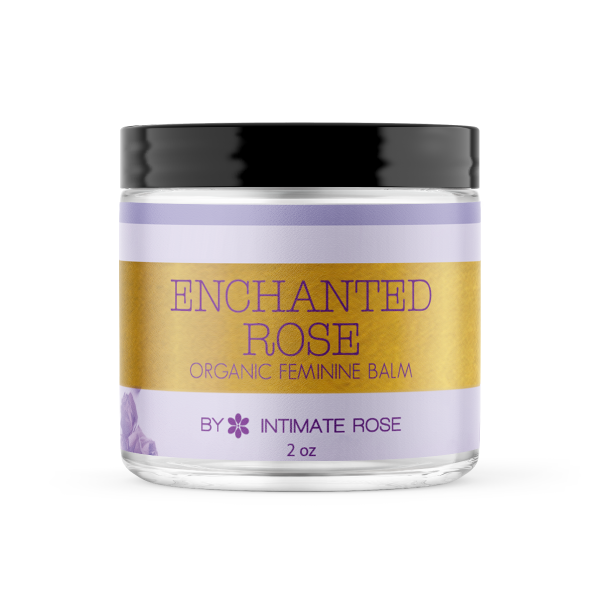Menopause is known to cause at least 34 major symptoms and although not all women experience all symptoms, it is nevertheless a challenging and unique journey for each woman.
Menopausal body odor is often an unexpected but common symptom and noticing its increased potency can be distressing for many women. However, understanding the causes of bad body odor in menopause and how it differs from premenopausal BO, can help you manage it and smell like yourself again.
Sweating and Body Odor Explained
Sweating is the body’s way of cooling down and preventing overheating and it occurs through two types of sweat glands – eccrine and apocrine. Both are always present in the body, but apocrine glands are only activated during puberty when the female hormones (estrogen and progesterone) increase.
Millions of eccrine sweat glands are located all over the body and directly connect to the skin’s surface. When the body temperature is too high, eccrine glands secrete a clear, odorless fluid mostly made up of water. Known as sweat or perspiration, when this liquid evaporates it releases heat and cools the surrounding skin.
Apocrine sweat glands open into hair follicles instead of the skin’s surface and are more typically found on the head, armpits, and groin areas where hair is plentiful. These glands produce a thick, protein-rich substance that becomes pungent once it connects with bacteria that reside on the skin’s surface. This pungent smell is what is known as body odor (BO).
Both types of sweat glands are activated by nerves that respond to several triggers, such as; physical activity, hormones, emotions, or signs from the brain that the body is hot.
Body Odor in Menopause: What Causes It?
Although the fluid released by the eccrine glands is mostly water with some salt and a little fat, the substance produced by the apocrine glands is made up of acids, carbohydrates, fats, peptides, and proteins. When this thick protein-rich substance combines with bacteria on the skin’s surface, the resulting byproducts are somewhat pungent.
During perimenopause and menopause, the female hormones fluctuate erratically, impacting not only the reproductive system but also the body’s temperature, skin, and sweat content. These changes can alter menopausal women’s body odor in the following ways:
Hormone Changes
During the transition into menopause, estrogen and progesterone typically decrease more than testosterone, and cortisol (stress hormone) levels tend to rise. Higher levels of cortisol and testosterone are known to cause more pungent body odor.
Another hormonal impact that can contribute to worse body odor during menopause is the connection that the female hormones have with the apocrine glands. Similar to how the increase of estrogen and progesterone activates the apocrine glands during puberty, a decrease in these hormones during perimenopause can have an impact too. For many, this means worse body odor.
Increased Body Temperature
Decreasing estrogen levels are known to affect serotonin receptors which, in turn, influence moods, sleep, cognition, learning, and the body’s temperature.
The hypothalamus, which is akin to the body’s thermostat and manages the body’s core temperature, is directly affected by any changes in serotonin levels. It is therefore believed that changes in serotonin levels during menopause, due to lowered estrogen levels, may contribute to a higher body temperature, more sweating, and increased body odor.
Hot Flashes & Night Sweats
Medically referred to as vasomotor symptoms, hot flashes & night sweats are known to affect 80% of women during perimenopause and/or menopause. Described as a sudden feeling of inner heat that starts in the head and neck and spreads through the entire body, hot flashes typically come in waves and pass as suddenly as they begin.
Sometimes women also experience heart palpitations with hot flashes and studies have shown that an increase in core body temperature tends to precede hot flashes or night sweats. And although the exact causes of hot flashes and night sweats during perimenopause and menopause are not clear, they are known to cause more sweating, which results in worse body odor.
More Acidic Sweat
Although body odor is known to worsen during perimenopause and menopause, it is rarely due to poor hygiene. In addition to a higher body temperature and hot flashes, changes in the make-up of women’s sweat can also impact body odor during menopause.
For example, when hormones fluctuate during perimenopause, perspiration tends to become more acidic and emits a more pungent odor.
Increased Stress
Given the myriad of changes and symptoms women endure during perimenopause and menopause, this time of life often causes increased anxiety and stress. Stress is known to affect the body in several ways, one of which is an increase in sweat produced by the apocrine glands.
This type of sweat is a thicker and more nutrient-rich liquid than the cooling sweat produced by the eccrine glands. And when it mixes with bacteria on the skin’s surface, it smells more potent.
Dehydration
Due to the increase in body temperature and regular occurrences of hot flashes or night sweats, women in perimenopause and menopause tend to lose more water through perspiration. If adequate water is not consumed to replace lost water, sweat becomes more condensed emitting a more intense smell.
Once concentrated sweat from the apocrine glands mixes with bacteria on the skin’s surface, BO is typically worse.
Lifestyle Changes
Because menopause can impact sleep and increase muscle and joint pain, many women exercise less due to ongoing fatigue, pain, or exhaustion. Eating habits can also change due to cravings, which add to weight gain, feelings of depression, and a reluctance to exercise. Furthermore, some middle-aged women tend to manage menopause stress and anxiety with alcohol, which is known to contribute to night sweats and poor sleep.
Lifestyle changes like poor sleep, fatigue, lack of exercise, and increased alcohol consumption can all impact a woman’s natural scent and worsen body odor.
How to Treat Body Odor in Menopause
Managing body odor during menopause is similar to controlling it before menopause. Washing regularly and using non-irritating deodorants can help but there are some extra medical solutions and natural remedies to curb the extra strong body odor during this time of life.
Prescription Deodorants
Prescription antiperspirants & deodorants can help reduce the potency of body odor during perimenopause and menopause. However, it’s also wise to speak with your healthcare provider about their chemical ingredients and how they could impact your overall health.
Hormone Therapy
Hormone Therapy (HT), estrogen therapy (ET) in particular, is often prescribed to relieve menopause symptoms due to the effects of lowering estrogen levels on the body. It is unlikely that healthcare providers would prescribe HT or ET only to treat strong body odor, but it is often prescribed to treat hot flashes and night sweats. Decreasing the frequency and impact of these menopause symptoms often alleviates body odor too.
Re-introducing estrogen to the body via HT, when it is otherwise naturally decreasing, is known to raise the risk of breast cancer, uterine, cancer, strokes, and blood clots. Therefore, each woman is advised to discuss their medical history with a healthcare provider to ascertain if HT is right for them.
Hormonal and Non Hormonal Menopause Relief
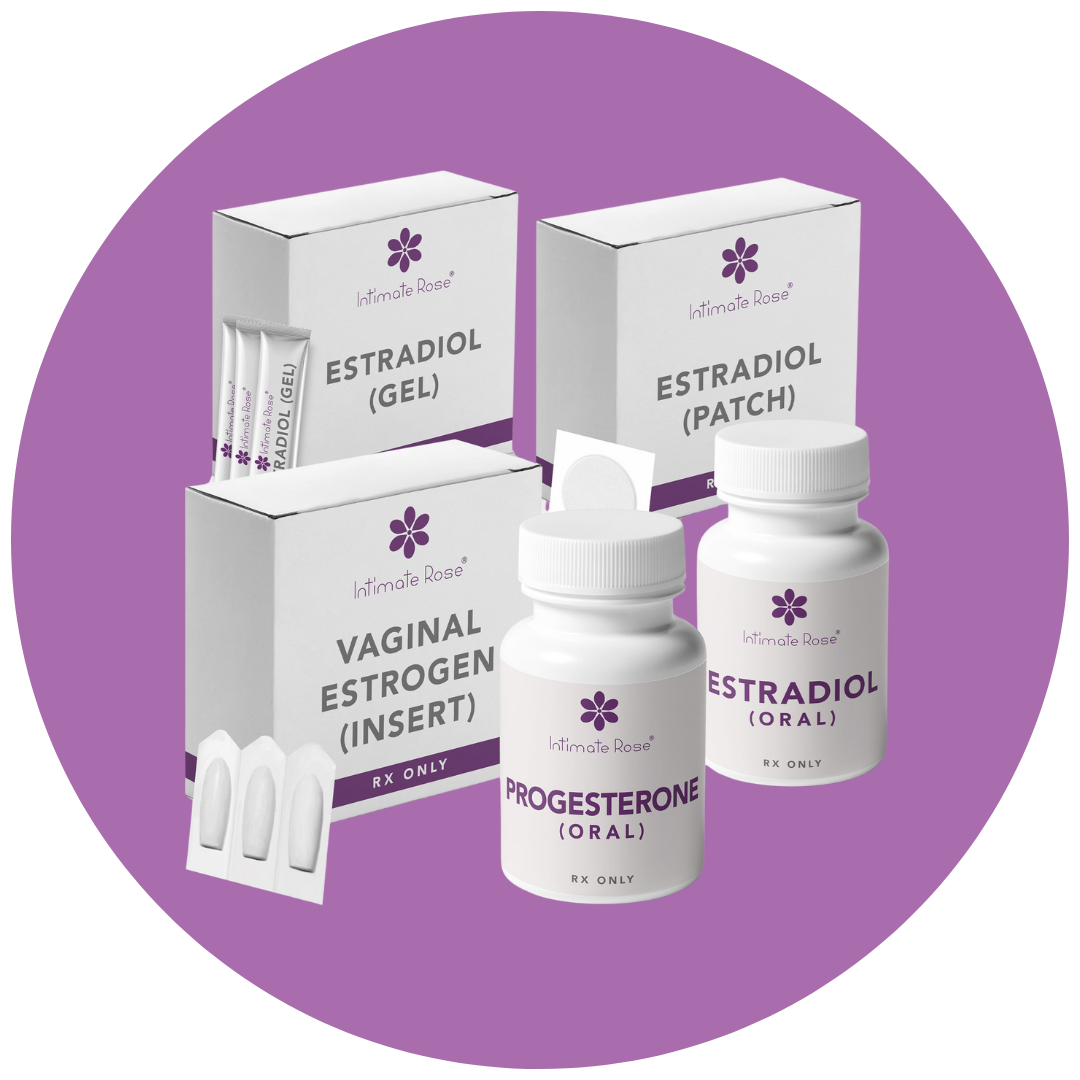
Phytoestrogens
Due to the risks involved in taking hormone therapy to treat menopause symptoms, an ancient and natural method of managing hormone levels is growing in popularity. Also known as selective estrogen receptor modulators (SERMs), phytoestrogens bind to estrogen receptors and imitate the effects that estrogen has on the body without any of the side effects of lab-produced hormone therapy.
For women experiencing perimenopause or menopause symptoms, taking a regular phytoestrogen can naturally rebalance fluctuating hormones and replenish estrogen-deficient skin. In turn, the occurrence of hot flashes and night sweats is lowered, and body odor is reduced.
Vaginal dryness is also relieved by phytoestrogens, sleep & moods are known to improve, and cardiovascular health and bone density are maintained instead of declining with estrogen.
What’s particularly special about phytoestrogens is that instead of re-introducing estrogen when it is naturally declining, they essentially trick the body into believing it has sufficient estrogen, and it reacts accordingly.
Where Can You Find Phytoestrogens to Treat Menopause?
Phytoestrogens are naturally found in plants, fruits, and vegetables such as apples, berries, cabbage, pears, plums, spinach, and grains. However, to ensure a sufficient and regular intake that can relieve symptoms of menopause, phytoestrogen supplements are recommended.
Vitex (Chasteberry) Supplements from Intimate Rose contain 1,000 mg of pure vitex, which is a phytoestrogen from the Chasteberry tree. Considered the most potent phytoestrogen supplements on the market, Vitex Chasteberry Supplements are vegan, affordable, effective, and safe.
Other Natural Remedies for BO in Menopause
Fabrics
Wearing natural, breathable fabrics such as cotton, linen, or hemp helps keep the body cool and dry. The key word here is ‘breathable’ meaning moisture is not trapped as it would be when wearing synthetic materials like polyester or nylon.
Cooling Tools
Having tools at hand to keep the body cool when hot flashes or night sweats occur can reduce sweating and the potency of body odor during menopause. Breathable sleepwear and air conditioning or a fan over your bed can help keep the body cool at night. Staying hydrated by carrying a hand fan and a refillable water bottle during the day can also help.
Reduce Stress
Because menopause symptoms can often increase stress, and stress can increase how much you sweat, managing stress levels will help reduce BO in menopause. Yoga, diaphragmatic breathing, and meditation are recommended relaxation practices.
However, walking, listening to music, reading, and lots of other activities that encourage people to disengage from the fast pace of life can also help reduce stress.
Eat & Drink Well
Some foods and drinks known to contribute to body odor can be reduced or eliminated to improve a woman’s natural scent during menopause. These can include alcohol, caffeine, garlic, onions, red meat, and hot spices. Water, on the other hand, consumed abundantly can help to dilute sweat and reduce potent body odor. Women are advised to drink 2.0-2.5 liters of water per day. If you sweat a lot during menopause, increase your water intake to 3.0 liters.
When BO During Menopause is Not Normal
If BO during perimenopause or menopause persists despite trying various solutions, it’s a good idea to book a consultation with a healthcare provider to rule out any underlying conditions. Body odor with a fruity scent can indicate diabetes, while BO that smells like bleach can be a sign of kidney problems, and sweat that smells fishy can signal liver issues and some types of cancer.

Get your personalized HRT plan!

Get your personalized HRT plan!
Conclusion
Worsening body odor during perimenopause, or BO becoming a concern for the first time during menopause, is a common complaint during this time of life. Although it can be embarrassing, menopausal BO is rarely caused by poor hygiene and is more commonly down to hormone fluctuations and physiological changes. To understand why it happens and how plant-based phytoestrogens can help to treat it, scroll up
References
Medical News Today – What Are the 34 Symptoms of Menopause - https://www.medicalnewstoday.com/articles/what-are-the-34-symptoms-of-menopause
The North American Menopause Society – Changes in Hormone Levels - https://www.menopause.org/for-women/sexual-health-menopause-online/changes-at-midlife/changes-in-hormone-levels
Science Direct – The Role of Serotonin in Hot Flushes - https://www.sciencedirect.com/science/article/abs/pii/S0378512200001511
National Library of Medicine - Influence of age and menopause on serum lipids and lipoproteins in healthy women - https://pubmed.ncbi.nlm.nih.gov/8457253/
National Library of Medicine - Menopause and the Skin: Old Favorites and New Innovations in Cosmeceuticals for Estrogen-Deficient Skin - https://www.ncbi.nlm.nih.gov/pmc/articles/ - PMC7859014/
National Library of Medicine - Evaluation of estrogenic activity of plant extracts for the potential treatment of menopausal symptoms - https://pubmed.ncbi.nlm.nih.gov/11368622/

Get your personalized HRT plan!




